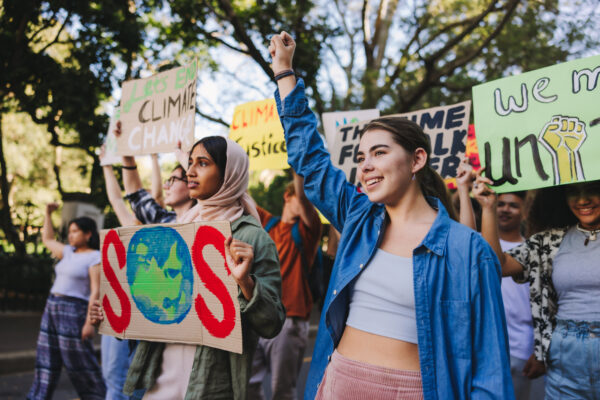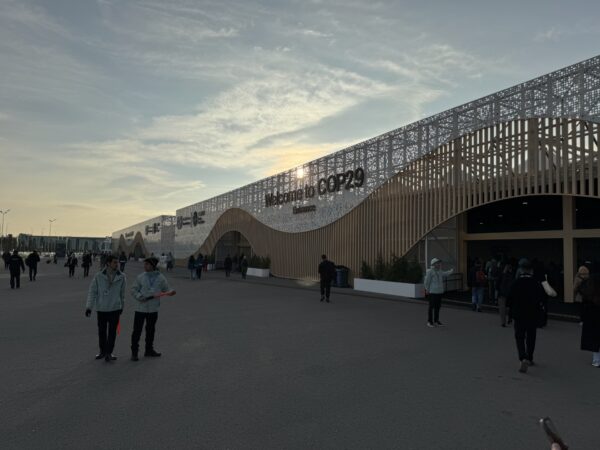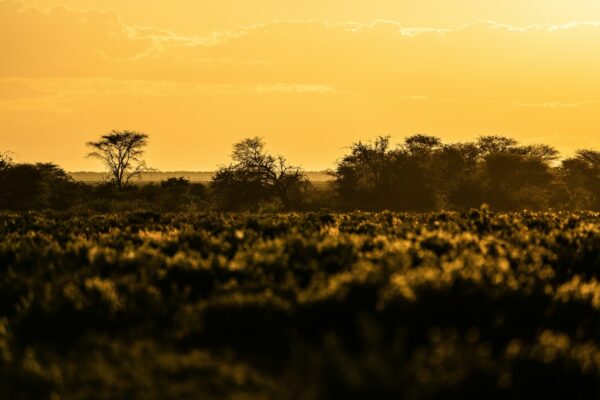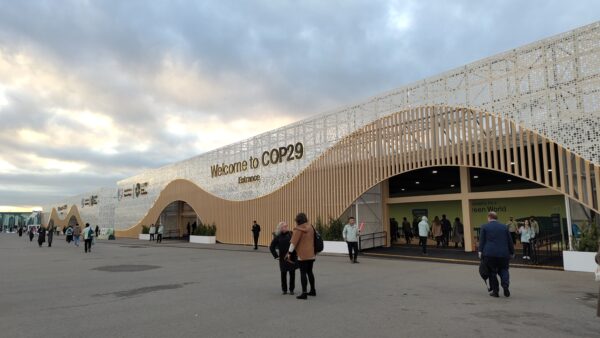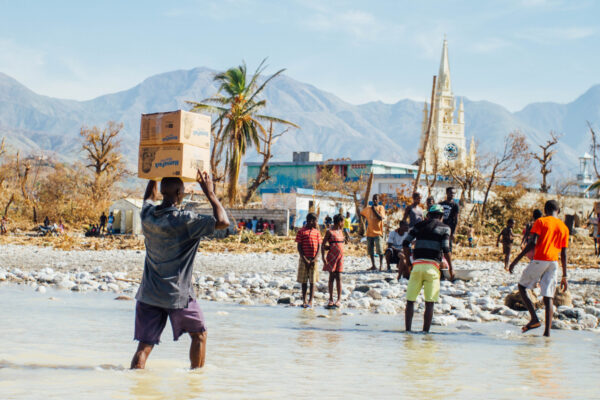International Women’s Day: climate scientists who happen to be women
Olivia Serdeczny, Marina Adrijevic, Nicole van Maanen, Emily Theokritoff and Shruti Nath
Share

Can you briefly introduce yourself and your area of expertise?
ET: I’m Emily Theokritoff. My work is in climate change adaptation – what needs to be done to adjust to the current and expected climate change and its impacts. In particular I focus on factors that make it more difficult to adapt – such as the lack of finance or weak governance. I explore when limits will be reached, reinforcing the call for urgent and stringent mitigation.
OS: Olivia Serdeczny – focusing on ‘Loss and Damage’, which more or less describes the impacts of climate change that we have little or no chance of adapting to. Specifically, I am looking at how climate impacts themselves may affect a society´s capacity to adapt. For example, if economic income suffers from climate impacts, then how does this influence the feasibility of costly adaptation options in the future?
MA: I’m Marina Andrijevic. I’m trying to help in advancing modeling tools that climate experts, economists and other scientists use to say something about future climate impacts on societies and how they could be avoided. My works revolves around understanding future socio-economic conditions that may be more or less favourable to managing adaptation to climate change.
NvM: My name is Nicole van Maanen. My work focuses on developing scenarios for sectoral adaptive capacity to climate change. By looking at what socio-economic factors enable or hinder adaptation, I try to project the future deployment of specific adaptation options eg. sustainable irrigation for the agricultural sector.
SN: Shruti Nath. I’m trying to further our understanding of physical interactions and feedbacks between land-use changes and the climate, eg. what happens to the local climate when you plant trees in a specific area. For this I implement ‘fancy-ish’ statistical techniques to simplify and extract climate signals from existing climate models so as to explore different climate scenarios with more computational agility.
How did you arrive in climate science and your particular area of research?
SN: I sort of fell into this area, I always loved climate sciences alongside the use of mathematical representation for chaotic systems and this was the perfect combination of both.
ET: Funnily enough, I started out by studying civil engineering – but it became clear to me very quickly during my studies that I had absolutely no desire to build bridges. I have always been interested in environmental and development questions, and as I pursed my Masters it became painfully obvious to me that climate change was the root cause of many of the problems faced on a global scale.
NvM: I started to get interested in topics around climate change during my Bachelors at the University of Potsdam. I was curious about climate policy and international climate negotiations, but then wondered on what evidence policy-makers would base their decisions? I decided I was not equipped with enough scientific knowledge to form my own opinion, so I went back to university to learn more about the fundamentals of climate science.
How do you go about tackling this area?
ET: I mainly use qualitative methods in my work: simply put I ask questions, listen to people, read a lot and write it all up once I have novel findings.
SN: I highly value interacting with fellow researchers, sharing problems and exchanging ideas. Of course, I also do a lot of self-study and research on my own but it’s not fun when you don’t share it with others in the end.
MA: It’s always a combination of reading, calculating, writing and talking to people. Sometimes I do wish I did more field work, but I can assure you also that a desk can be a fun place too when you, for instance, realise you’ve got interesting results or when you have this moment when of finally understanding something you’ve been struggling with!
Has COVID impacted your research at all?
OS: Yes, a lot. I have a little child, and as we initially had chosen not to send him to childcare, I was seriously constrained in my working hours. I did the lion´s share of the childcare at home for I think two reasons: one, I tend to still disadvantage myself, valuing my time less than my male partner´s – somehow knowing and reflecting upon it does not suffice to get rid of that bad habit. Then at the same time, I think it’s still socially more accepted when a mother says she cannot attend a call or has to push a deadline, than when a father would do so.
ET: I was meant to do several months of fieldwork in the Caribbean last year when the pandemic struck and I had planned several trips to the region during the course of my PhD. Luckily, I have been able to find alternatives: online surveys, interviews and workshops have allowed me to collect data and move forward with my work. On a positive note, I drastically reduced the carbon footprint of my research project.
SN: Zoom is weird – for lack of a better word – and especially in my neighborhood the internet is unreliable at times. For sure I find it difficult to separate work/life divide and find myself working late without realising it, but then I make up for it by sleeping in a bit more.
NvM: Unfortunately, yes – I had planned to go to a number of conferences last year. In my opinion, research is a way of knowledge sharing and learning from each other, so I really feel like I am missing out.
MA: I’m actually very humbled when I see what women (and men) around me with children, elderly parents, precarious jobs, etc. have to juggle. I am in comparison in very privileged circumstances. So, if anything, lockdown’s brought me more time and quiet to concentrate on research. It wouldn’t be an overstatement to say that it’s helped me bring my PhD to an end.
Do you notice your gender in your work?
NvM: Just recently I participated in a workshop organised by my university on overcoming impostor syndrome. When the call started there were 30 female PhD students on my screen who apparently are dealing with feeling like an impostor. It was extremely touching but also kind of sad to realise how many women in research experience self doubt.
Generally, I would say that climate research, and especially the more quantitative research area I am working in, is still largely led by white men from the Global North. If you think about it, even in the latest IPCC Assessment Report only 20% of the authors and contributors were women.
MA: It’s not uncommon to still see ‘manels’ (panel discussions only with men) and it really makes one wonder if that’s a good representation of the field? Thankfully, the field is tilting towards (more) gender equality and there definitely are female experts to fill any panel out there.
I’ve also been in a few meetings where I was either the only or one of very few women at the table, and this is when you notice your gender, of course. At this junior career stage, it can also be difficult to disentangle the effect of hierarchy and of gender, so young women can be found in a double disadvantage at this intersection.
ET: Gender is not the focus of my work but I do reflect on this topic a lot. I have noticed that women and men tend to have different ways to get their points across when answering interview questions – but this is only personal observation!
OS: Less and less, I would say. With time you learn to choose who to work with and who not. I had several experiences where I would not get serious responses to content questions from elderly men – basically being dismissed.
In one instance we half-jokingly sent an email I had pre-formulated from my male colleague´s email account, after the recipient had repeatedly not reacted in substance to my emails. As predicted, my male colleague received a clear and thought-through response. I dealt with it by laughing, telling the story to as many people as I can, and declining to work with said email recipient in the future. Their loss ;-).
SN: Not all the time, but its inescapable in some instances. When I go to more specialised conferences it is obvious that there are more male than female participants (70-30%). Sometimes I also have a suspicion that women are grilled more about their work than men after delivering talks at conferences.
On a daily basis its less obvious and I suppose the climate field has better (although still not equal) representation than for instance physics or mathematics, where I definitely had the experience of being the only female in class and felt like a rare, wild Pokémon.
Do you come across many female role models in your area of research?
MA: Yes, of course, but still depends on the area. My work is an overlap of many different areas, so while there are for example lots of women in field of climate adaptation, there are still not as many in the climate modeling world. But I feel like I can rely on wisdom and advice of many successful women around me!
ET: Many! And this is a great source of inspiration and motivation for me. My female colleagues at Climate Analytics teach and support me a lot, I am very grateful for that.
SN: I choose to try not notice gender when looking at research leaders but on a more primal/instinctual level I have been having quite a few more ‘yes/fist pump’ moments when I see more and more female leaders – although it’s still not equal.
Recommendations
Interested in climate science and gender? Our researchers have compiled a list of books, podcasts, articles, videos and discussions that inspire them personally and in their work.
Articles
- “The eco gender gap: why is saving the planet seen as women’s work?” by Elle Hunt, in The Guardian.
“An article on the newly coined term of ‘the eco gender gap’ and why we need men to be onboard too” – Emily - “The misogyny of climate deniers” by Martin Gelin, in New Republic.
- “Zuzana Caputova, the President of Slovakia, Voices Her Country’s Hopes and Frustrations” by Masha Gessen, in The New Yorker.
“I think it’s important to take note of the many inspiring women that are filling the top political positions right now. I am particularly impressed by Zuzana Caputova, the President of Slovakia, environmental lawyer and an activist.” – Marina
Videos
- “The Apocalypse by Contrapoints”
“For an entertaining, cynically styled breaking down of our current predicament and answering the question: Is it hot in here or is the world just like this now?” – Shruti - “How shocking events can spark positive change”
“A TED talk by Naomi Klein on increasing crises and their interconnectedness and the need for collective action.” – Nicole
Scientific Articles
- “A decade of weather extremes” by Dim Coumou and Stefan Rahmstorf.
“This is my inspiration of quick, concise scientific writing that is socially relevant.” – Shruti - “The Inequality of Climate Change From 1.5 to 2°C of Global Warming” by Andrew D. King and Luke J. Harrington.
“This scientific article sheds light, yet again, on how exceeding 1.5°C of global warming would lead to the poorest experiencing the greatest climate impacts.” – Nicole
Podcasts
- “How to Save a Planet” by Dr. Ayana Elizabeth Johnson.
“A podcast discussing what we need to do to solve the climate crisis – for everyone to understand!” – Nicole - “A Matter of Degrees” by Dr. Leah Stokes and Dr. Katherine Wilkinson.
“This is a great podcast by Leah Stokes and Katherine Wilkinson about climate activism, climate justice and different tools to tackle climate change.” – Marina
Books
- “Angry Weather: Heat Waves, Floods, Storms, and the New Science of Climate Change” by Friederike Otto.
“This read is unfortunately not fiction, but it’s a fascinating. What Friederike Otto and her team do to figure out the fingerprint of climate change on extreme events has been called the ‘forensics of climate science’. It is a compelling story of how climate attribution works.” – Marina - “Home body” by Rupi Kaur.
“Home body is a collection of poems by a young woman addressing growth, self-love and acceptance.” – Nicole - “The Challenge for Africa” by Wangari Maathai.
“Having grown up in Kenya and always trying to be the best hummingbird I could, this book really seals humanity’s spiritual connection to Earth as well as appreciates the cultural complexity underlying solutions to climate change.” – Shruti - “Our House Is on Fire: Scenes of a Family and a Planet in Crisis” by Greta Thunberg, Svante Thunberg, Malena Ernman, Beata Ernman.
“This book was written by the Thunberg family and recounts how Greta first decided to go on strike from school in August 2018, which then ignited a worldwide movement.” – Emily - “Mission Economy” by Mariana Mazzucato.
“I’m currently reading the latest book from my favorite economist, Mariana Mazzucato. Mazzucato acknowledges and thanks other women like Hannah Arendt, Elinor Ostrom, Carlota Perez etc. whose work she’s building on which I think is very cool.” – Marina - “Ecofeminism” by Maria Mies and Vandana Shiva.
“This has a great overview of the intersectionality of our collective struggle to better our environment.” – Shruti





